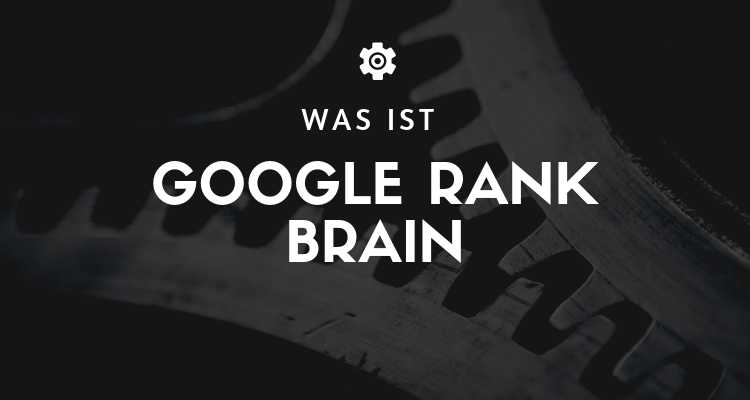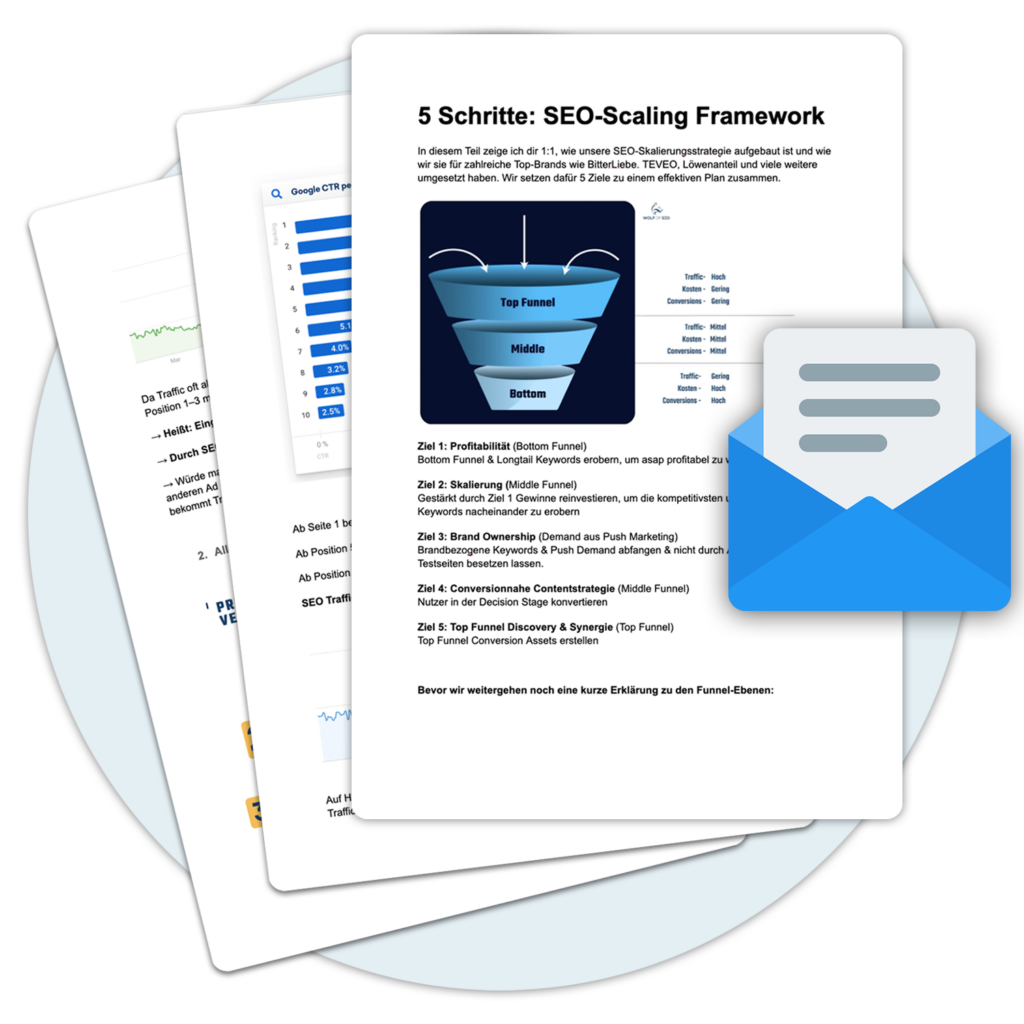What is Google Rank Brain?
RankBrain is an AI (Artificial Intelligence) program that was developed to help Google understand search queries. It helps Google, Search results and to process more relevant Search results for the users. It embeds a variety of written languages into mathematical units, called vectors, that the machine can understand. When Rank Brain is confronted with a sentence it doesn't know, it can guess the meaning with similar sentences or words and filter the result accordingly, making it more accurate for the new trials.
Instead of being pre-programmed to respond to certain situations in a predetermined way (as Google search has been), it can update itself over time. Think of it as a robot that can constantly improve itself, rather than relying on an external human for occasional maintenance.
While Google search engines guessed correctly 70 percent of the time, Rank Brain had an 80 percent success rate.
Insgesamt ist Rank Brain in der Lage, neue Muster zu lernen und zu erkennen und dann SERPS (Suchmaschinen-Ergebnisseite) basierend auf seinem neuen Wissen zu überarbeiten.
How does Google Rank Brain work?
Google RankBrain is an artificial intelligence algorithm that is part of the Google search algorithm and helps to optimize the Search results to improve. RankBrain is a machine learning component that helps Google better understand search queries and deliver more relevant results. Let me explain it to you with some illustrations and examples:
- Understanding Search Queries: RankBrain helps Google to better understand the meaning of search queries by analyzing human language and recognizing the contexts. For example, if someone searches for "best running shoes", Google understands RankBrain, that the user is looking for a list of the best running shoes rather than a single brand or model of shoe.
- Verarbeiten von Long-Tail-Keywords: RankBrain is particularly useful when it comes to so-called long-tail keywords. These are longer, more specific search queries that may occur less frequently. RankBrain can better understand these queries and thus deliver results that match users' actual intentions.
- Recognize synonyms and related terms: RankBrain can recognize synonyms and similar terms that are used in different contexts. For example, if someone searches for "bicycle repair", they will understand RankBrainthat this term is similar to "Fahrradwerkstatt" and shows the user relevant results for both terms.
- Learning from user behavior: RankBrain constantly learns from user behavior in order to improve the Search results to improve. For example, if many users click on a certain link, this could RankBrain consider it relevant and place it higher in the search results. At the same time, the algorithm can also detect when users are dissatisfied with the displayed results and adjust the rankings accordingly.
- Personalization: RankBrain also contributes to the personalization of the Search results with. It takes into account factors such as the user's location, search history and interests in order to deliver more relevant results.
RankBrain is therefore an important component of the Google search algorithm and helps to improve the quality and Relevance the Search results continuously improve. As a website operator, you should make sure to provide high-quality, relevant and useful content that meets user requirements in order to benefit from RankBrain to be evaluated positively.
What the Google Rank Brain is not?
- It is not a new knowledge diagram. The Google Knowledge Graph is also an artificial intelligence program, but this is not a new version of the Knowledge Graph, nor is it directly related to the feature.
- It is not a new type of search. RankBrain is not a new Search Engine, nor is it intended to make any significant updates to the process Google uses to find results.
- This is not an algorithm update. Do not think about RankBrainjust as you would think of Google Panda or Google Penguin. This is not a new algorithm. Instead, it's a new modification that works in conjunction with Hummingbird (the semantic search algorithm) to produce more meaningful results.
- It is not a robot. It's just a set of mathematical equations that can learn and improve over time.
Possible effects on the SEO
Google RankBrain influences SEO practices because it changes the way Google understands search queries and the Search results sorted. RankBrain is designed to improve the user experience by providing more accurate and relevant results. Here are some points, such as RankBrain that influences SEO, and I will explain them with examples and illustrations:
- Focus on user intent: Since RankBrain understands the search queries better, it is important that you align your content with the users' intentions. Make sure your content provides relevant and useful information to fulfill users' needs. For example, if your page is about "yoga for beginners", it should include clear instructions, images and videos that will help someone who is new to yoga.
- Optimization for long-tail keywords: RankBrain is good at processing long-tail keywords. Therefore, it's important that you also include these more specific search terms in your content and meta tags. For example, you could create a guide that specifically targets "vegan gluten-free cake recipes" instead of just "cake recipes".
- Use of synonyms and terms related to the topic: RankBrain understands synonyms and related terms, so you should use them in your content as well to make the Relevance of your page. For example, you could use terms like "bike repair shop", "bike repair" and "bike service" to optimize a page about bike repair services.
- Improving the user experience: Since RankBrain learns from user behavior, it's important to provide a good user experience on your website. This means that you should pay attention to factors like page speed, mobile optimization, and user-friendly design. For example, if your page loads too slowly, users might get frustrated and bounce, which could RankBrain could be interpreted negatively.
- Create high-quality content: RankBrain emphasizes high-quality content that offers users added value. This means that you should focus on creating detailed, well-researched and well-written content. For example, you could create an in-depth guide to the "Best Photography Tips for Beginners" that includes step-by-step instructions, images and examples.
- Semantic Search: RankBrain improves Google's semantic search by recognizing relationships between words and concepts. Therefore, it is important that you craft your content so that it is comprehensive, clear and covers a variety of related terms. For example, if you're writing an article about 'sustainable fashion', you could also include topics such as 'organic materials', 'fair trade' and 'upcycling'.
- Adaptation to voice search and natural language: Since RankBrain is also able to better understand more natural language and voice search queries, you should improve your content and Keyword-strategy accordingly. This means that you should consider questions and statements that users might ask in natural language. For example, you could use keywords such as "How do I create a vegetable garden?" or "Best tips for growing tomatoes".
- Important Ranking-factors to keep in mind: Although RankBrain an important Ranking-factor, you should also continue to use other important Ranking-factors to keep in mind, such as Backlinks, on-page SEO and Social Signals. For example, you could continue to work on getting high-quality Backlinks to your website by writing guest posts or Influencer-partnerships.
- Continuous monitoring and adaptation: Since RankBrain is a self-learning system, its criteria and weightings can change over time. Therefore, it's important that you regularly review and adjust your SEO strategy to ensure that it continues to be effective. For example, you might want to review your Keyword-strategy or your Content-planning on the basis of changes in search behavior or the data provided by RankBrain adjust prioritized factors.
By integrating these additional aspects into your SEO strategy and focusing on Google's RankBrain factors, you can increase your chances of ranking better in search results and gaining more organic traffic. Traffic to your website. Always remember that the key to success in SEO is to adapt to the ever-changing algorithms and best practices and focus on providing high-quality, relevant and useful content to users.
« Back to Glossary Index






